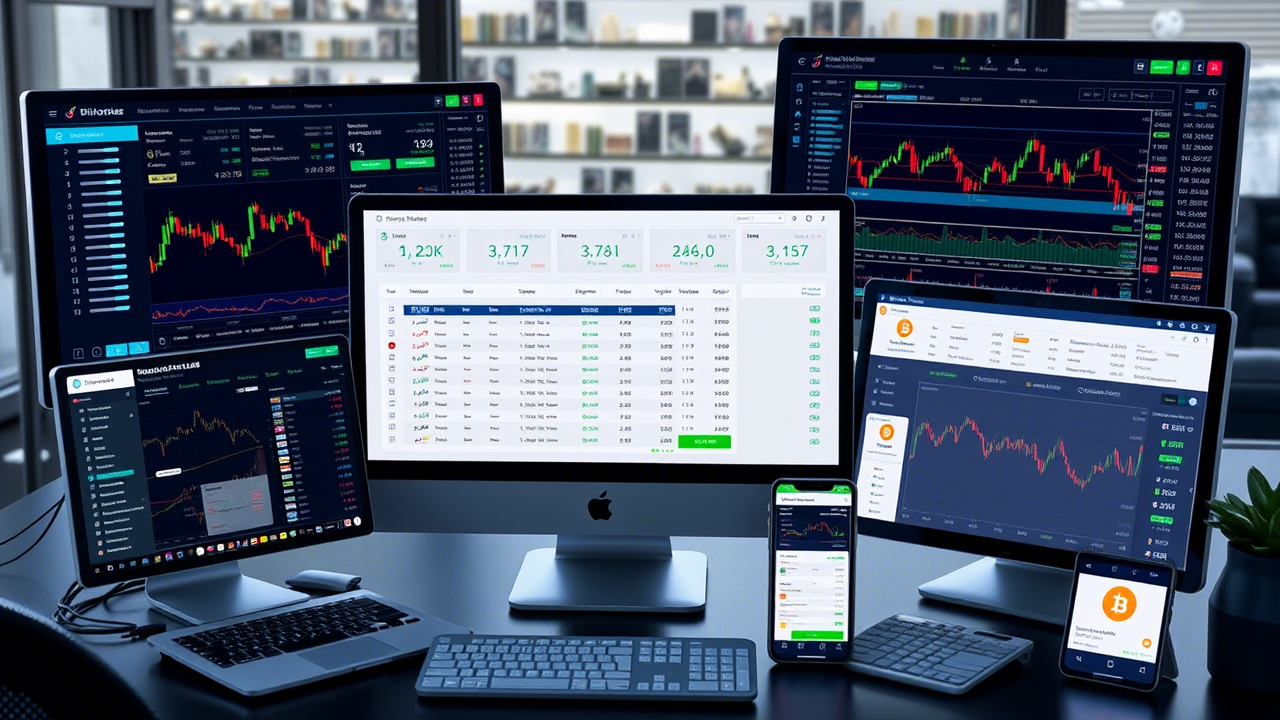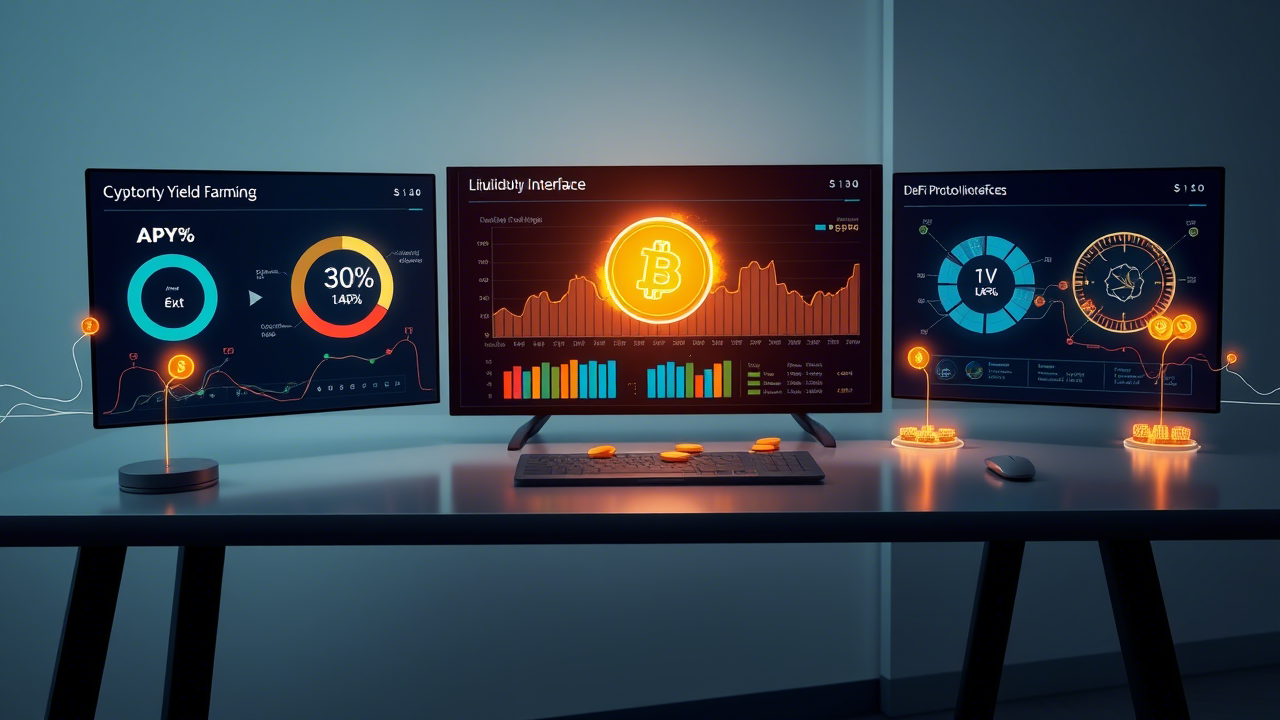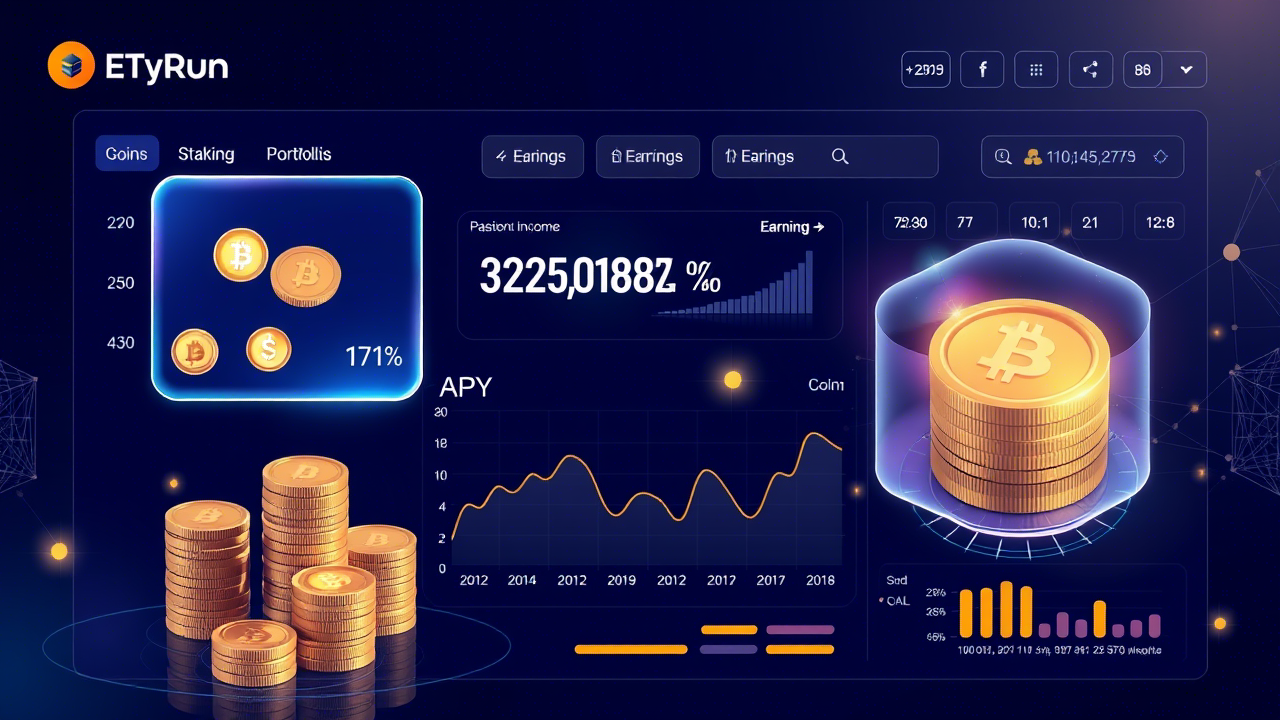Finding the right cryptocurrency exchange can make or break your digital asset investment journey. With hundreds of trading platforms available globally, choosing the best crypto exchange requires careful evaluation of security, fees, features, and regulatory compliance. This comprehensive guide will help you navigate through the top cryptocurrency exchanges and make an informed decision based on your specific needs.
The cryptocurrency market has evolved dramatically, with exchange platforms becoming the backbone of digital asset trading. Whether you’re a beginner looking to make your first Bitcoin purchase or an experienced trader seeking advanced features, understanding the differences between various crypto exchanges is crucial for your investment success.
Understanding Cryptocurrency Exchange Fundamentals
A cryptocurrency exchange serves as a digital marketplace where users can buy, sell, and trade various digital currencies. These trading platforms act as intermediaries, facilitating transactions between buyers and sellers while providing essential services like wallet storage, market analysis tools, and customer support.
Digital currency exchanges operate differently from traditional stock exchanges. They function 24/7, offer instant transactions, and provide access to hundreds of cryptocurrencies that aren’t available through conventional financial institutions. The blockchain technology underlying these platforms ensures transparency and security in all transactions.
When evaluating crypto exchange platforms, consider factors like security measures, trading fees, available cryptocurrencies, user interface, customer support, and regulatory compliance. These elements directly impact your trading experience and the safety of your digital assets.
Top Global Cryptocurrency Exchanges Overview
The global cryptocurrency exchange landscape features several dominant players, each offering unique advantages for different types of traders and investors.
Binance stands as the world’s largest crypto exchange by trading volume, offering access to over 350 cryptocurrencies and advanced trading features. The platform provides competitive fees, extensive educational resources, and multiple trading options including spot trading, futures, and options.
Coinbase has established itself as the most user-friendly exchange for beginners, particularly in the United States. With strong regulatory compliance and insurance coverage for digital assets, Coinbase offers peace of mind for new crypto investors. The platform supports over 100 cryptocurrencies and provides educational programs to help users understand cryptocurrency investment.
Kraken focuses on security and regulatory compliance, making it a preferred choice for institutional investors and serious traders. The exchange offers advanced trading tools, margin trading, and staking services while maintaining one of the best security records in the industry.
FTX (note: currently under restructuring) previously offered innovative trading products and derivatives, though users should exercise caution given recent developments in the platform’s operations.
Best Crypto Exchange Platforms in India
India’s cryptocurrency market has experienced tremendous growth, with several exchanges catering specifically to Indian users’ needs and regulatory requirements.
WazirX leads the Indian cryptocurrency exchange market, offering rupee-based trading pairs and integration with global liquidity through its Binance partnership. The platform supports UPI payments, making it convenient for Indian users to deposit and withdraw funds. WazirX charges competitive fees and provides access to over 100 cryptocurrencies.
CoinDCX positions itself as India’s largest crypto exchange, offering both basic and advanced trading interfaces. The platform provides features like systematic investment plans (SIP) for cryptocurrencies, lending services, and educational resources. CoinDCX supports multiple payment methods including bank transfers and UPI.
Bitbns focuses on providing low-cost trading solutions for Indian cryptocurrency enthusiasts. The exchange offers competitive fees, a user-friendly mobile app, and quick verification processes. Bitbns supports major cryptocurrencies and provides rupee trading pairs for seamless local currency transactions.
ZebPay has established itself as one of India’s oldest and most trusted crypto exchanges. The platform emphasizes security and regulatory compliance while offering features like recurring investments, educational content, and portfolio tracking tools.
Best Crypto Exchange Apps for Mobile Trading
Mobile trading has become essential for modern cryptocurrency investors, with several exchanges offering exceptional mobile applications.
The Binance app provides comprehensive trading features, including spot trading, futures, options, and portfolio management tools. The application offers real-time market data, advanced charting tools, and secure two-factor authentication. Users can access crypto trading strategies directly through the mobile interface.
Coinbase Pro mobile app combines user-friendly design with professional trading features. The application provides access to advanced order types, detailed market analysis, and integrated wallet services. The app’s intuitive interface makes it suitable for both beginners and experienced traders.
Crypto.com app offers a comprehensive ecosystem including trading, earning, and spending features. The application provides access to over 250 cryptocurrencies, staking services, and a crypto debit card for everyday spending.
Gemini mobile app focuses on security and ease of use, offering features like dollar-cost averaging, educational content, and insured custody services. The app provides a simple interface for buying and selling cryptocurrencies while maintaining institutional-grade security.
Comparing Trading Platform Fees Structure
Understanding fee structures is crucial when selecting a crypto exchange, as trading costs can significantly impact your investment returns over time.
Maker and Taker Fees represent the most common fee structure on cryptocurrency exchanges. Maker fees apply when you place orders that add liquidity to the order book, while taker fees apply when you place orders that remove liquidity. Most exchanges offer lower maker fees to encourage liquidity provision.
Deposit and Withdrawal Fees vary significantly between platforms and payment methods. Bank transfers typically incur lower fees compared to credit card deposits, while cryptocurrency withdrawals involve network fees that fluctuate based on blockchain congestion.
Trading Volume Discounts are offered by most major exchanges, with fee rates decreasing as your 30-day trading volume increases. High-volume traders can achieve significantly reduced fees through these tier-based systems.
Geographic Fee Variations exist across different regions, with some exchanges offering preferential rates for specific countries or payment methods popular in certain regions.
Security Features and Safety Measures
Security remains the most critical factor when choosing a cryptocurrency exchange, given the irreversible nature of blockchain transactions and the high value of digital assets.
Cold Storage Solutions involve storing the majority of user funds in offline wallets, protecting them from potential hacking attempts. Leading exchanges typically store 95% or more of user funds in cold storage, with only a small percentage kept online for daily trading operations.
Two-Factor Authentication (2FA) adds an extra layer of security by requiring users to provide a second form of verification beyond their password. Most reputable exchanges mandate 2FA for all users and support various authentication methods including SMS, authenticator apps, and hardware tokens.
Insurance Coverage protects user funds against potential losses due to security breaches or operational failures. Some exchanges maintain insurance policies covering digital assets, though coverage terms and amounts vary significantly between platforms.
Regulatory Compliance ensures exchanges operate within legal frameworks and maintain proper financial controls. Licensed exchanges undergo regular audits and must comply with anti-money laundering (AML) and know-your-customer (KYC) requirements.
Regional Focus: Best Crypto Exchanges by Geography
Different regions have varying regulatory environments and user preferences, leading to the emergence of region-specific exchange leaders.
United States favors exchanges with strong regulatory compliance like Coinbase, Gemini, and Kraken. These platforms prioritize legal compliance and offer features like tax reporting tools and institutional services.
Europe sees strong adoption of exchanges like Bitstamp, Bitpanda, and local platforms that comply with EU regulations. European exchanges often provide SEPA transfers and support for multiple European currencies.
Asia-Pacific regions have diverse preferences, with Binance maintaining strong presence across multiple countries. Local exchanges like Bitfinex (Hong Kong) and independent platforms serve specific market needs.
Middle East markets, particularly the UAE, show growing interest in cryptocurrency trading, with international exchanges expanding their services and local platforms emerging to serve regional preferences.
Advanced Trading Features and Tools
Professional traders require sophisticated tools and features to implement complex investment strategies for digital wealth effectively.
Margin Trading allows users to borrow funds to increase their trading position size, potentially amplifying both profits and losses. Experienced traders use margin trading to implement advanced strategies, though it requires careful risk management.
Futures and Derivatives provide opportunities to trade cryptocurrency contracts without owning the underlying assets. These instruments allow hedging strategies and speculation on price movements with leverage.
API Access enables algorithmic trading and integration with third-party tools. Professional traders and institutions use APIs to implement automated trading strategies and connect with portfolio management systems.
Advanced Order Types including stop-loss, take-profit, and conditional orders help traders manage risk and execute complex strategies. These features are essential for active trading and risk management.
User Experience and Interface Design
The user interface significantly impacts your trading experience, especially for beginners entering the cryptocurrency market.
Beginner-Friendly Interfaces prioritize simplicity and ease of use, with clear navigation and straightforward buying processes. These interfaces often include educational content and guided workflows for new users learning how to buy Bitcoin.
Professional Trading Interfaces provide advanced charting tools, multiple order types, and customizable layouts for experienced traders. These interfaces typically offer real-time market data, technical analysis tools, and portfolio management features.
Mobile Optimization ensures seamless trading experiences across devices, with responsive design and mobile-specific features like biometric authentication and push notifications.
Customization Options allow users to personalize their trading environment, including watchlists, alert settings, and interface layouts tailored to individual preferences.
Regulatory Compliance and Legal Considerations
Understanding regulatory compliance is crucial for long-term cryptocurrency investment success and legal protection.
KYC and AML Requirements mandate user identity verification and transaction monitoring to prevent money laundering and comply with financial regulations. While these requirements may seem cumbersome, they provide legal protection and legitimacy to cryptocurrency trading.
Licensing and Registration vary by jurisdiction, with some countries requiring cryptocurrency exchanges to obtain specific licenses or register as money service businesses. Licensed exchanges typically offer better consumer protection and regulatory oversight.
Tax Reporting Tools help users track their cryptocurrency transactions for tax purposes. Some exchanges provide integrated tax reporting features or partner with tax software companies to simplify compliance.
Geographic Restrictions may limit access to certain exchanges based on user location due to regulatory requirements or business decisions. Understanding these restrictions is important when choosing an exchange for long-term use.
Customer Support and Educational Resources
Quality customer support and educational resources significantly enhance the cryptocurrency trading experience, particularly for new investors.
Support Channel Availability includes options like live chat, email support, phone support, and comprehensive FAQ sections. Response times and support quality vary significantly between exchanges, with some offering 24/7 multilingual support.
Educational Content helps users understand cryptocurrency basics, trading strategies, and market analysis. Leading exchanges provide extensive educational resources including articles, videos, webinars, and interactive tutorials covering topics from cryptocurrency for beginners to advanced trading techniques.
Community Resources including forums, social media channels, and user communities provide peer-to-peer support and knowledge sharing. Active communities can be valuable resources for troubleshooting and learning from experienced traders.
Account Management Tools help users track their trading history, portfolio performance, and account settings. Comprehensive account management features improve the overall user experience and provide better control over trading activities.
Cryptocurrency Exchange Comparison Matrix
When evaluating different cryptocurrency exchanges, a systematic comparison helps identify the platform that best matches your specific needs and trading style.
Security Ratings should be your primary consideration, evaluating factors like cold storage implementation, insurance coverage, regulatory compliance, and security incident history. Exchanges with strong security records and transparent security practices deserve preference.
Fee Comparison involves analyzing trading fees, deposit/withdrawal costs, and any hidden charges. Consider both current fees and fee structures for higher trading volumes if you plan to increase your trading activity.
Cryptocurrency Selection varies significantly between exchanges, with some offering hundreds of cryptocurrencies while others focus on major coins. Ensure your chosen exchange supports the cryptocurrencies you want to trade, including emerging altcoins if that’s part of your strategy.
Geographic Availability and regulatory compliance in your jurisdiction affect your ability to use certain exchanges and access specific features like fiat currency support and customer protection.
Specialized Exchange Types and Services
The cryptocurrency ecosystem includes various specialized exchange types serving different user needs and trading strategies.
Decentralized Exchanges (DEX) operate without central authority, allowing peer-to-peer trading directly from users’ wallets. While DEXs offer increased privacy and control, they typically have lower liquidity and more complex user interfaces compared to centralized exchanges.
Peer-to-Peer Platforms connect buyers and sellers directly, often supporting local payment methods and providing escrow services. These platforms can offer better privacy and access to local payment methods but may involve higher counterparty risk.
Institutional Exchanges cater to professional traders and institutional investors with features like advanced APIs, high liquidity, and specialized custody services. These platforms typically require higher minimum deposits but offer professional-grade trading tools.
Hybrid Platforms combine exchange services with additional features like lending, staking, and crypto wallet services, providing comprehensive cryptocurrency ecosystem access through a single platform.
Also Visit : www.coinmarketcap.com
Future Trends in Cryptocurrency Exchanges
The cryptocurrency exchange landscape continues evolving rapidly, with several trends shaping the future of digital asset trading.
Regulatory Standardization is increasing globally, with more countries implementing comprehensive cryptocurrency regulations. This trend will likely lead to improved consumer protection and institutional adoption while potentially reducing the number of available exchanges.
Integration with Traditional Finance is expanding, with cryptocurrency exchanges partnering with banks and traditional financial institutions to offer seamless fiat-to-crypto conversions and integrated financial services.
Enhanced Security Measures continue developing, including advanced authentication methods, improved custody solutions, and insurance products specifically designed for cryptocurrency holdings.
DeFi Integration is growing, with centralized exchanges incorporating decentralized finance features like yield farming, liquidity mining, and governance token support to compete with DeFi protocols.
FAQ
Which crypto exchange has the lowest fees?
Exchange fees vary based on trading volume and payment methods, but Binance typically offers some of the lowest trading fees globally at 0.1% for both maker and taker orders, with further discounts available for high-volume traders and BNB token holders.
Is it safe to keep crypto on exchanges?
While reputable exchanges implement strong security measures, keeping large amounts of cryptocurrency on exchanges involves counterparty risk. For long-term holdings, consider transferring funds to a personal hardware wallet for enhanced security.
Which exchange is best for beginners?
Coinbase and Gemini are excellent choices for beginners due to their user-friendly interfaces, educational resources, and strong regulatory compliance, though they typically charge higher fees compared to more advanced platforms.
Can I use multiple crypto exchanges?
Yes, many traders use multiple exchanges to access different cryptocurrencies, take advantage of varying fee structures, and reduce counterparty risk by diversifying their holdings across platforms.
What documents do I need to verify my account?
Most exchanges require government-issued photo ID (passport or driver’s license) and proof of address (utility bill or bank statement) for account verification, with some platforms requiring additional documentation for higher withdrawal limits.
Final Thought
Selecting the best crypto exchange requires careful consideration of your individual needs, trading experience, and geographic location. While global giants like Binance and Coinbase offer comprehensive services, regional exchanges may provide better local support and payment options. Prioritize security, understand fee structures, and start with small amounts while you familiarize yourself with your chosen platform. Remember that the best crypto to buy now means nothing if you don’t have a secure and reliable exchange to trade on.












Leave a Reply